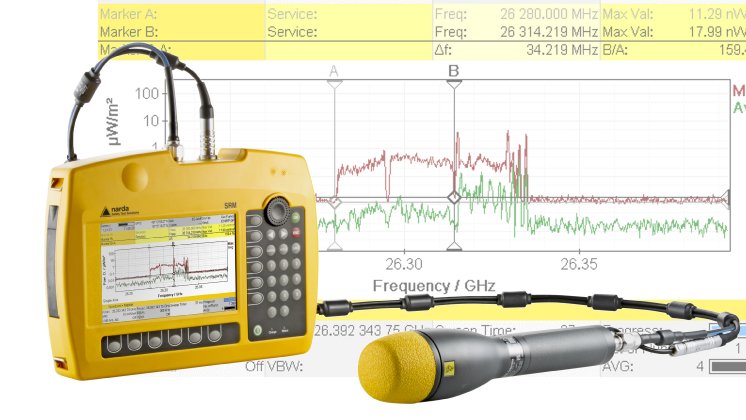Good news for authorities, mobile network operators, and measurement service providers: The SRM-3006, the established industry reference device for selective EMF environmental measurements conforming to ICNIRP and many other national and international standards, can now also be used in the millimeter wave range, making it future-proof. For example, the selective measurement enables targeted examination of the 5G band and of a specific network provider. This intelligent frequency extension of the SRM-3006 to include FR2 means that measurement technicians considering the requirements of 5G NR (5th Generation New Radio) do not need to learn how to use, let alone acquire, a new measuring device. Just as in the past, they can in future continue to benefit from this measuring system that is designed for professional, precise, and reliable EMF measurements like no other.
Maximum confidence through simple operation
User friendliness and ease of operation remain at the forefront. This avoids measurement errors, and achieves the high reliability of the results of EMF safety measurements that has made the SRM-3006 so well known in the industry. Setting up the new antennas is really easy, too. Once the new 5G downconverter antenna is connected, all that is needed is to set the desired frequency band and start the measurement sequences as usual. As usual, the new antennas also have their frequency response (sensitivity versus frequency) data stored in the 5G antenna itself. When connected using a Narda antenna cable, the data are automatically read by the SRM basic unit and applied. Such simple measurement setup and operation guarantees that the measurement results for these high 5G frequencies will be just as fast, error-free and reliable as before.
The two 5G downconverter antennas
The new 5G antennas cover the 5G bands from 24.25 to 27.50 and 26.50 to 29.50 GHz. As high losses occur even in short cable runs at these high FR2 frequencies, the downconverter is connected directly to the antenna module. Together, these form a perfect unit. The cable to the basic unit only carries frequencies up to 6 GHz, so that cable losses are considerably less and the type of cable that can be used is much more robust.
The antennas have their own built in rechargeable battery with an operating time of about 4 hours. They therefore do not restrict the operating time of the SRM basic unit. They can be used with a conventional external power pack for long term measurements.
Narda’s new 5G omnidirectional antenna is recommended for non-directional EMF environmental measurements in the open air. In contrast with isotropic antennas, with which they are not synonymous, they achieve ideal reception results with signals in the X-Y plane due to their omnidirectional characteristic. They must be rotated during the measurement in order to also cover the third dimension (Z). The second, extremely sensitive 5G downconverter antenna with its directional characteristic is ideal for reliably capturing very weak signals. In particular, attenuations of up to 30 dB caused by window glass, for example, are quite common at these frequencies when making measurements indoors. The directional characteristic can also be used effectively to separate or localize mobile radio transmitter antennas by measurement.

